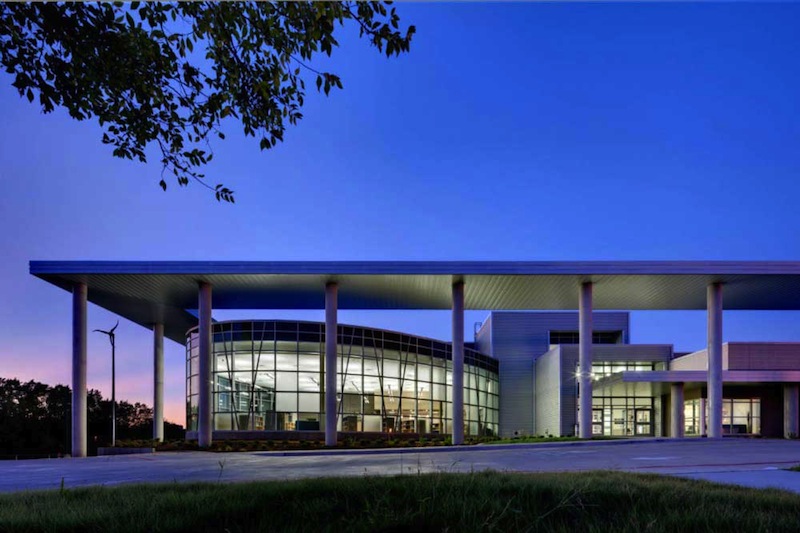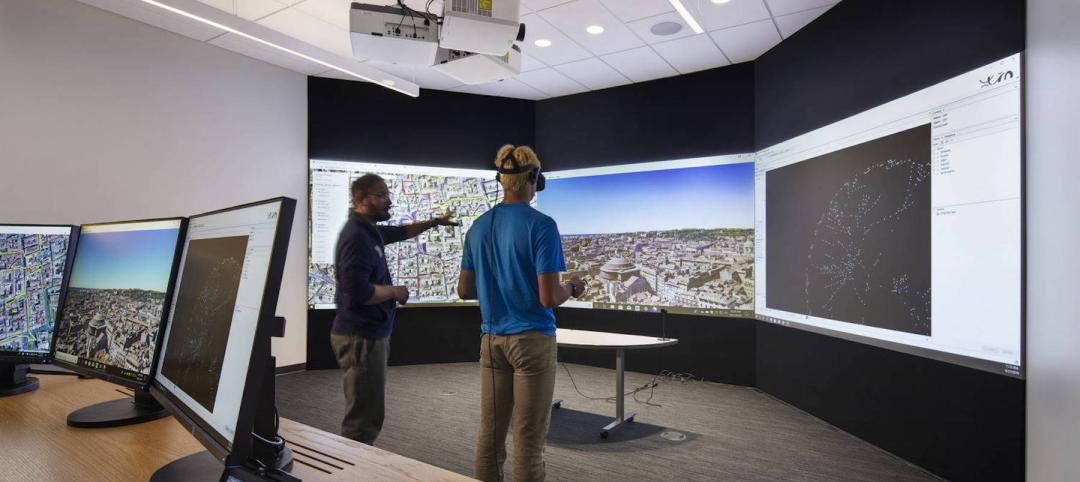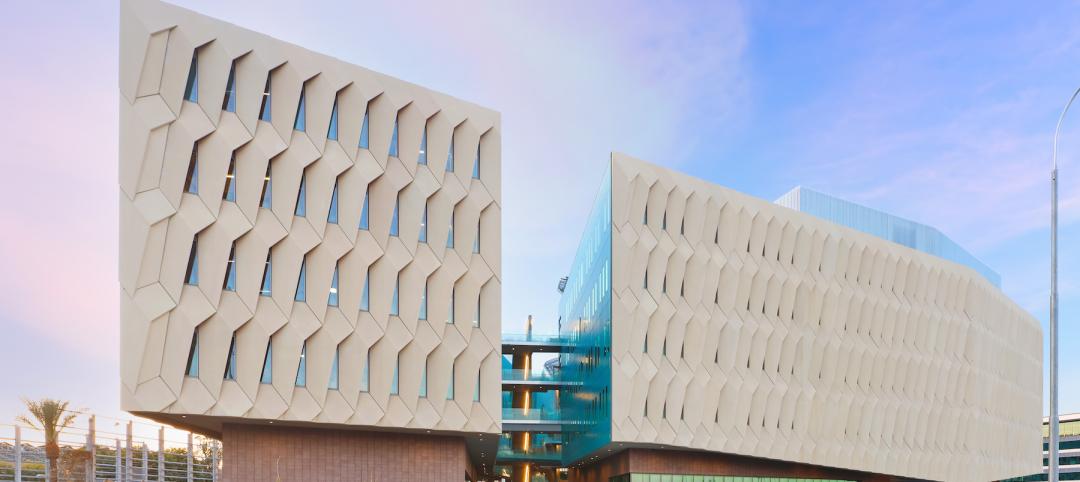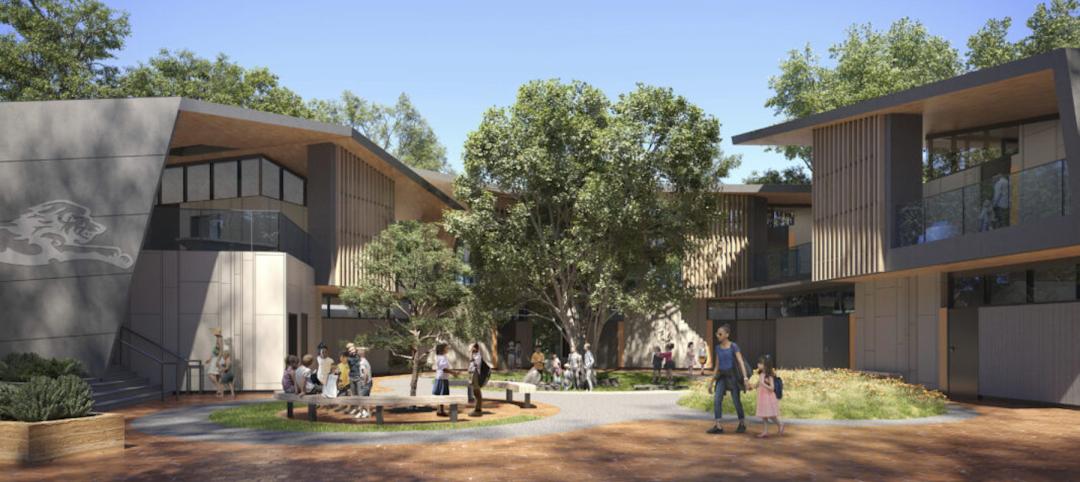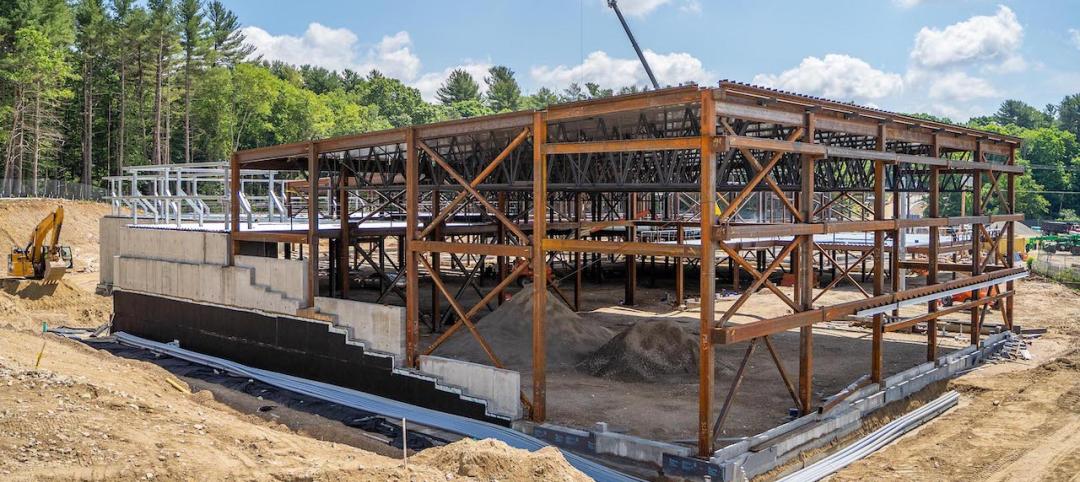The Center for Green Schools at the U.S. Green Building Council (USGBC) today announced its third annual “Best of Green Schools” list, which recognizes top educational institutions, individuals and initiatives across the country for environmental efforts.
“In reviewing the nominations for the Best of Green Schools 2013 list, what we experienced more than anything was profound gratitude for the thousands of champions who are catalyzing the green schools movement and demonstrating to the nation and the world that where our children learn matters,” said Rachel Gutter, director of the Center for Green Schools at USGBC. "This list represents exemplary leadership from schools, campuses, students, policy makers and more who are raising the bar when it comes to creating healthy, safe and resource-efficient schools.”
The Best of Green Schools list highlights schools, individuals and communities working toward the common goal of healthy, high-performing learning places for all. The list recognizes the hard work being done across the country to make schools better and honors the best examples in the green schools movement.
The recipients of the Best of Green Schools 2013 include:
K-12 School – Lady Bird Johnson Middle School (Irving, Texas): LEED Gold Lady Bird Johnson Middle School is the first net-zero energy school in the state of Texas. At 152,250 square feet, the campus is the largest net-zero educational facility in the country.
Higher Education Institution – Emory University (Atlanta, Ga.): Emory University has identified sustainability as one of its top priorities — to help restore the global ecosystem, foster healthy living and reduce the university’s impact on the local environment. Emory has among the highest number of square feet of LEED-certified space of any campus in America.
Ambassador – Lori Braunstein, Delaware Valley Green Building Council (DVGBC): As director for green schools at DVGBC, Braunstein has developed an effective and comprehensive strategy for engaging and supporting teachers, students, facilities managers and administrators around sustainability programs in schools. She also initiated the statewide Pennsylvania Green & Healthy Schools Partnership to bring together key stakeholders from the green building, environmental education and health and wellness fields around an agenda for green and healthy schools.
Policy Maker – Colorado state Sen. Andy Kerr: Kerr has been one of the strongest proponents of green schools in Colorado and throughout the country for many years. In the spring of 2013, he successfully passed SB 13-279, requiring all school districts in Colorado to build new schools or to reconstruct schools to the highest possible energy efficiency.
Moment for the Movement – California Proposition 39, the Clean Energy Jobs Act: Under the landmark Clean Energy and Jobs Act, $2.5 billion over the next five years will be directed toward energy efficiency projects and repairs to promote healthy, high-performing schools in California.
Business Leadership – Houghton Mifflin Harcourt (HMH): HMH is helping to transform learning environments by driving the conversation around sustainability education and the Common Core. HMH also serves as a partner of the Center for Green Schools’ Green Apple program, making a financial contribution in honor of school customers who switch from physical textbook samples to the (greener) virtual alternative.
Community Event – Green Apple Day of Service event at Duckett’s Lane Elementary School (Elkridge. Md.): Grimm +Parker Architects joined Dustin Construction and the students, principal and staff of Duckett’s Lane Elementary School on Sept. 29, 2013, to host and coordinate a student-led scavenger hunt for environmental features in and around the new school. Stations were set up to demonstrate how the building and site are teaching tools for their environmental literacy curriculum.
Collaboration – Celebrate Sustainability: This "green partnership" is among Virginia Tech, the town of Blacksburg, Va. and Sustainable Blacksburg, a local citizen's group in the town. Every year, the three organizations come together to program a week's worth of events that recognize and celebrate the sustainability achievements of the school and the town over the previous year.
Transformation – The Green Schools Academy (as led by Jenna Cramer, vice president of green schools for the Green Building Alliance): The Green Schools Academy program brings together private, public, parochial and charter schools to work toward a culture of sustainability and transformation in healthy schools for all children.
Student Leadership – Bluegrass Youth Sustainability Council (Fayette County, Ky.): The Bluegrass Youth Sustainability Council (BYSC) is a project-based organization composed of students from all Fayette County high schools. The BYSC meets monthly to discuss collaborative environmental outreach projects, partnership prospects and leadership and post-secondary opportunities in all areas of sustainability including energy management, outdoor classrooms, waste management, water quality and air quality.
Please visit centerforgreenschools.org/bestof2013 for more information on each of this year’s recipients.
Related Stories
AEC Tech | Aug 8, 2022
The technology balancing act
As our world reopens from COVID isolation, we are entering back into undefined territory – a form of hybrid existence.
Legislation | Aug 5, 2022
D.C. City Council moves to require net-zero construction by 2026
The Washington, D.C. City Council unanimously passed legislation that would require all new buildings and substantial renovations in D.C. to be net-zero construction by 2026.
Cultural Facilities | Aug 5, 2022
A time and a place: Telling American stories through architecture
As the United States enters the year 2026, it will commence celebrating a cycle of Sestercentennials, or 250th anniversaries, of historic and cultural events across the land.
Sponsored | | Aug 4, 2022
Brighter vistas: Next-gen tools drive sustainability toward net zero line
New technologies, innovations, and tools are opening doors for building teams interested in better and more socially responsible design.
| Aug 4, 2022
Newer materials for green, resilient building complicate insurance underwriting
Insurers can’t look to years of testing on emerging technology to assess risk.
Sustainability | Aug 4, 2022
To reduce disease and fight climate change, design buildings that breathe
Healthy air quality in buildings improves cognitive function and combats the spread of disease, but its implications for carbon reduction are perhaps the most important benefit.
Multifamily Housing | Aug 4, 2022
Faculty housing: A powerful recruitment tool for universities
Recruitment is a growing issue for employers located in areas with a diminishing inventory of affordable housing.
Multifamily Housing | Aug 3, 2022
7 tips for designing fitness studios in multifamily housing developments
Cortland’s Karl Smith, aka “Dr Fitness,” offers advice on how to design and operate new and renovated gyms in apartment communities.
Building Materials | Aug 3, 2022
Shawmut CEO Les Hiscoe on coping with a shaky supply chain in construction
BD+C's John Caulfield interviews Les Hiscoe, CEO of Shawmut Design and Construction, about how his firm keeps projects on schedule and budget in the face of shortages, delays, and price volatility.
Codes and Standards | Aug 3, 2022
Some climate models underestimate risk of future floods
Commonly used climate models may be significantly underestimating the risk of floods this century, according to a new study by Yale researchers.


